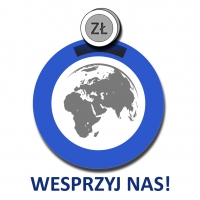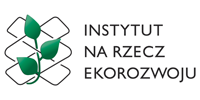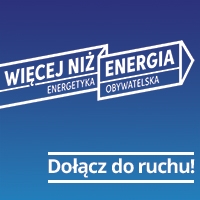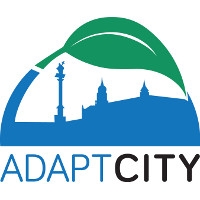- Kalendarium
-
Debaty
- Czy Polska będzie "Fit for 55%"?
- Efektywność energetyczna i odnawialne źródła energii w budynku wielorodzinnym
- Gospodarowanie wodą w budynku wielorodzinnym
- Jak przeciwdziałać ubóstwu energetycznemu i zanieczyszczeniom powietrza
- Szanse rozwoju energetyki morskiej w Polsce
- E-mobility – czy tylko samochód elektryczny?
- Zielone finansowanie
- Gospodarka o obiegu zamkniętym
- Czy planowanie przestrzenne w Polsce da się naprawić?
- Czy transformacja energetyczna w Polsce oznacza wzrost bezrobocia?
- Roślinność na wokół i w budynku wielorodzinnym
- Fundusze unijne na gospodarkę niskoemisyjną
- Ekologia w modzie i tekstyliach
- Seminarium naukowe: Co ekstremalne zjawiska pogodowe mówią nam o zmianach klimatu?
- Woda w mieście - jak ją zagospodarować
- Senior czuje dobry klimat
- Przyszłość ciepłownictwa w Polsce
- Jak zmniejszyć ubóstwo energetyczne?
- Jak osiągnąć neutralny dla klimatu transport w ciągu najbliższych 30 lat?
- Jaki rynek pracy po węglu?
- Czy polska gospodarka może działać bez węgla?
- Jaką energetykę warto dotować?
- Dlaczego węgiel tanieje?
- Zielone miejsca pracy
- Miasto bez samochodu?
- Śląsk - co po węglu?
- Ustawa o energetyce odnawialnej
- Ile powinien kosztować prąd
- Szczyt klimatyczny w Limie
- Węgiel a zdrowie
- Efektywność szansą dla gospodarki
- Energetyka rozproszona
- Polska wobec celów 2030
- Biblioteka
- Wideo
- Patronaty
- Projekty
- O serwisie
- Opinie
- Aktualności
- Efektywność energetyczna i odnawialne źródła energii w budynku wielorodzinnym
- Gospodarowanie wodą w budynku wielorodzinnym
- Jak przeciwdziałać ubóstwu energetycznemu i zanieczyszczeniom powietrza
- Szanse rozwoju energetyki morskiej w Polsce
- E-mobility – czy tylko samochód elektryczny?
- Zielone finansowanie
- Gospodarka o obiegu zamkniętym
- Czy planowanie przestrzenne w Polsce da się naprawić?
- Czy transformacja energetyczna w Polsce oznacza wzrost bezrobocia?
- Roślinność na wokół i w budynku wielorodzinnym
- Fundusze unijne na gospodarkę niskoemisyjną
- Ekologia w modzie i tekstyliach
- Seminarium naukowe: Co ekstremalne zjawiska pogodowe mówią nam o zmianach klimatu?
- Woda w mieście - jak ją zagospodarować
- Senior czuje dobry klimat
- Przyszłość ciepłownictwa w Polsce
- Jak zmniejszyć ubóstwo energetyczne?
- Jak osiągnąć neutralny dla klimatu transport w ciągu najbliższych 30 lat?
- Czy Polska będzie "Fit for 55%"?
- Jaki rynek pracy po węglu?
- Czy polska gospodarka może działać bez węgla?
- Jaką energetykę warto dotować?
- Dlaczego węgiel tanieje?
- Zielone miejsca pracy
- Miasto bez samochodu?
- Śląsk - co po węglu?
- Ustawa o energetyce odnawialnej
- Ile powinien kosztować prąd
- Szczyt klimatyczny w Limie
- Węgiel a zdrowie
- Efektywność szansą dla gospodarki
- Energetyka rozproszona
- Polska wobec celów 2030
Aktualności
Activities and results (12822)
2011-06-27Drukuj
{jacomment off}
County Network for the Climate
County Network for the Climate will be formed by those counties, which will sign a special declaration at the later stage of the Project. The objective for forming the network is to foster mutual stimulation of local authorities for taking actions related to climatic change as well as encouraging them for increased involvement in similar international networks.
Introducing the Local Civil Society Initiators (LISO)
Within the framework of Project activities, a network of Local Civil Society Initiators (LISO) will be formed. LISO’s tasks will be to gather from the region the information on activities for climate protection and adaptation to climatic changes, as well as animation of local activities under the Project, e.g. local debates. In addition, they will gain support in the form of an educational and social networking.
Organization of local public debates
Among project activities, 85 local debates are to be held in 2012 and 2013. Debates will serve as an opportunity for local authorities to meet with the representatives of local business and citizens, with the aim of raising the awareness of possible solutions related to climatic changes and the development of “green” economy, specific to the needs of a particular local community.
Organizing local- government regional conferences
16 regional conferences will be held in 2013 and 2014 addressed to the local government officials and county administration as well as representatives of municipal or provincial-level governments. Conferences are designed to strengthen cooperation on climate protection among local authorities themselves. Their aim is to draw up the Declaration on joint actions to protect climate. The regional conferences will be organized between two nationwide conferences, one in 2012 and the other in 2015.
Preparation of Pilot Low-Carbon Development Program for one of the counties or a county town
Pilot Low-Carbon Development Program is a comprehensive development program aimed at reducing the emission of carbon dioxide by at least 20% until the year 2020 with respect to the level recorded in 2005. For the purpose of achieving this goal, activities foreseen under the Program will be financed with the essential contribution from EU funds, under the 2014-2020 financial perspective. Among all county towns willing to participate, selected will be the one which will prove most determined to act in favor of climate protection. Most costs of Program execution will be covered under the Project, which will also provide to expertise for Program preparation, as well as social consultations. The program document is meant to serve as a model for other local communities.
Carbon footprint measure
The carbon footprint is an indicator of a total volume of greenhouse gas emissions of a given local community caused directly or indirectly by human activity. The calculation of such an indicator can help in the preparation of concrete action due to reduce carbon dioxide emissions. The carbon footprint also enables easy comparison among different local communities. For local authorities willing to be effective in the field of climate protection, it is usually the first step for the preparation of a comprehensive program of actions. Counties which will meet certain criteria, carbon footprint assessment for 2011 and 2015 will be performed under the Project.
Monitoring of county’s activity for climate protection
Monitoring activity will be carried out by the Local Civil Society Initiators (LISO) in 110 counties participating in the Project. For this purpose a survey will be conducted in each county at the end of 2011 and in late 2014 and 2015. The study will cover a group of local leaders or county authorities. The study will focus on the environmental awareness of county leaders and their knowledge of county activities for climate protection and adaptation of climatic changes. Study results will provide information on the degree of county commitment for climate protection.
Preparation of project information materials
Among the project information materials a number of special leaflets, brochures and videos will be prepared. A County Climate Package will be published. It will be a guide to climate protection at the local level adapted to the Polish needs. Reports on the pilot actions, i.e.: carbon footprint calculation and Pilot Low-Carbon Development Program will also be printed and distributed.
A study visit to Cornwall
In 2015 the best local leaders, selected on the basis of their involvement in the course of the local debates, the most active LISO and the most active representatives of local government will participate in a study visit in Cornwall to see the best practice example of actions is taken to protect climate by local government . Cornwall is a county in the UK, announced by the British government as a first low-carbon region in this country.
| from 30.09.2010 to 31.01.2011 | The selection of counties to the project |
| from 01.02.2011 to 30.04.2011 | The selection of Local Civil Society Initiators, |
| from 01.07.2011 to 30.06.2012 | The first assessment of the carbon footprint carried out for 5 counties from County Network for Climate. |
| from 30.08.2011 to 22.12.2011 | The first poll carried out by Local Civil Society Informers |
| II quarter 2012 | I nationwide climate conference |
| from 01.07.2012 to 30.03.2013 | Work of County Network for Climate on county network declaration |
| from 01.10.2012 to 28.02.2013 | Local debates in counties participating In the project |
| from 01.04.2013 to 30.03.2014 | Regional conferences |
| from 30.06.2013 to 30.08.2015 | Work on Pilot Low-Carbon Development Program selected county town |
| from 01.09.2014 to 30.08.2015 | The second assessment of the carbon footprint carried out for 5 counties from County Network for Climate. |
| IV quarter 2014 | A study visit to Cornwall |
| from 01.10.2014 to 30.03.2015 | The second poll carried out by Local Civil Society Informers |
| I quarter 2015 | II nationwide climate conference |
Dates presented in the table may be slightly modified. Please follow the information on our website.
Tłum. Katarzyna Sołdaczuk
Podziel się swoją opinią
Za treść materiału odpowiada wyłącznie Fundacja – Instytut na Rzecz Ekorozwoju


Newsletter
Patronaty
Kalendarium
- PN
- WT
- ŚR
- CZ
- PT
- SO
- ND
Warning: Illegal string offset 'dzien' in /tpl_c/%%58^58D^58DE6355%%kalendarz.tpl.php on line 31
0
Warning: Illegal string offset 'dzien' in /tpl_c/%%58^58D^58DE6355%%kalendarz.tpl.php on line 31
0
Warning: Illegal string offset 'dzien' in /tpl_c/%%58^58D^58DE6355%%kalendarz.tpl.php on line 31
0
Warning: Illegal string offset 'dzien' in /tpl_c/%%58^58D^58DE6355%%kalendarz.tpl.php on line 31
0
Warning: Illegal string offset 'dzien' in /tpl_c/%%58^58D^58DE6355%%kalendarz.tpl.php on line 31
0- 1
- 2
- 3
- 4
- 5
- 6
- 7
- 8
- 9
- 10
- 11
- 12
- 13
- 14
- 15
- 16
- 17
- 18
- 19
- 20
- 21
- 22
- 23
- 24
- 25
- 26
- 27
- 28
Projekty
 |
ChronmyKlimat.pl wersja 2.0 – portal na temat zmian klimatu dla społeczeństwa i biznesu. © Copyright Fundacja Instytut na rzecz Ekorozwoju |
| Redakcja: ul. Nabielaka 15 lok. 1, 00-743 Warszawa, tel. +48 +22 8510402, -03, -04, fax +48 +22 8510400, portal@chronmyklimat.pl |
RSS
Polityka prywatności









